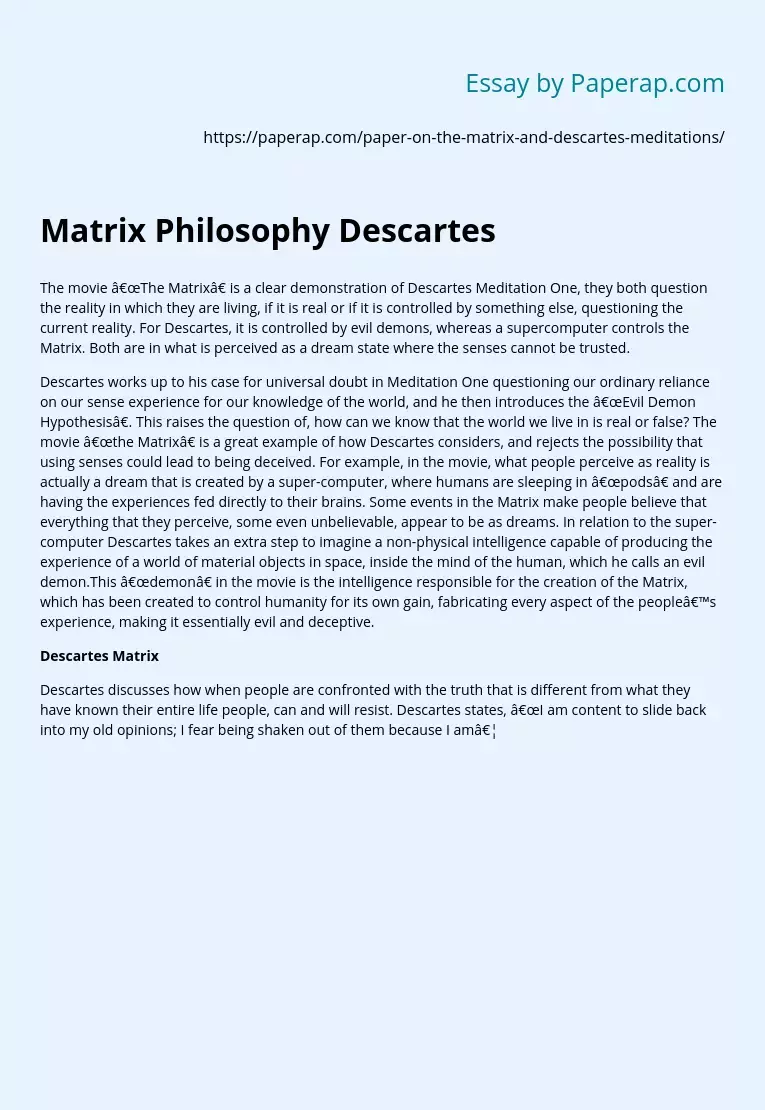Matrix Philosophy Descartes
The movie “The Matrix” is a clear demonstration of Descartes Meditation One, they both question the reality in which they are living, if it is real or if it is controlled by something else, questioning the current reality. For Descartes, it is controlled by evil demons, whereas a supercomputer controls the Matrix. Both are in what is perceived as a dream state where the senses cannot be trusted.
Descartes works up to his case for universal doubt in Meditation One questioning our ordinary reliance on our sense experience for our knowledge of the world, and he then introduces the “Evil Demon Hypothesis”.
This raises the question of, how can we know that the world we live in is real or false? The movie “the Matrix” is a great example of how Descartes considers, and rejects the possibility that using senses could lead to being deceived. For example, in the movie, what people perceive as reality is actually a dream that is created by a super-computer, where humans are sleeping in “pods” and are having the experiences fed directly to their brains.
Some events in the Matrix make people believe that everything that they perceive, some even unbelievable, appear to be as dreams. In relation to the super-computer Descartes takes an extra step to imagine a non-physical intelligence capable of producing the experience of a world of material objects in space, inside the mind of the human, which he calls an evil demon.This “demon” in the movie is the intelligence responsible for the creation of the Matrix, which has been created to control humanity for its own gain, fabricating every aspect of the people’s experience, making it essentially evil and deceptive.
Descartes Matrix
Descartes discusses how when people are confronted with the truth that is different from what they have known their entire life people, can and will resist. Descartes states, “I am content to slide back into my old opinions; I fear being shaken out of them because I am…
Matrix Philosophy Descartes. (2019, Dec 05). Retrieved from https://paperap.com/paper-on-the-matrix-and-descartes-meditations/

